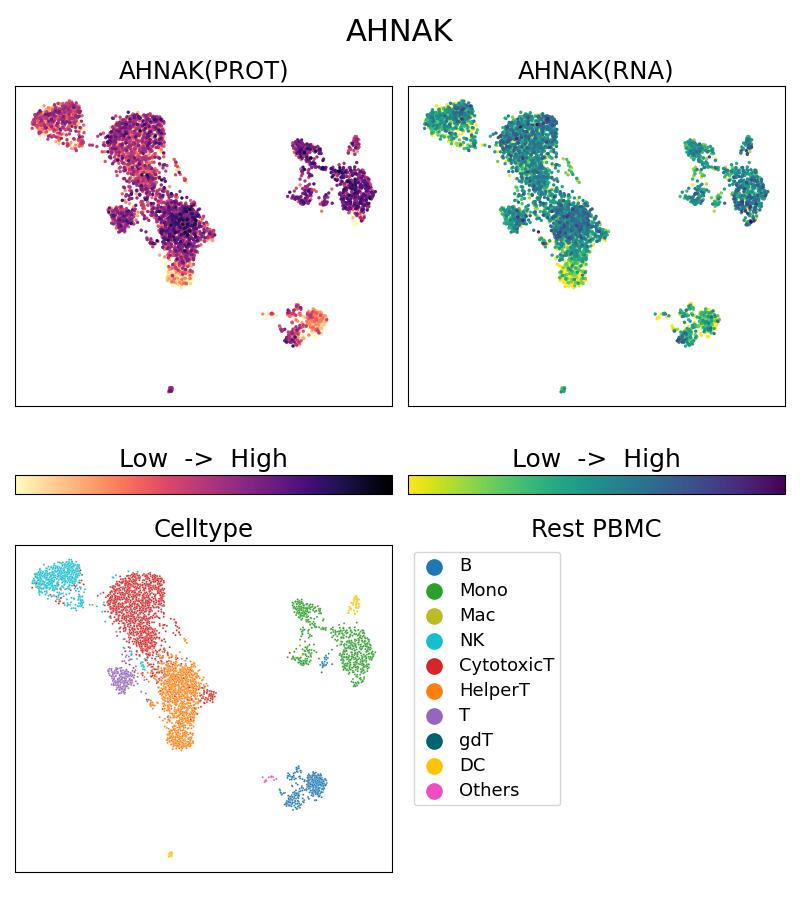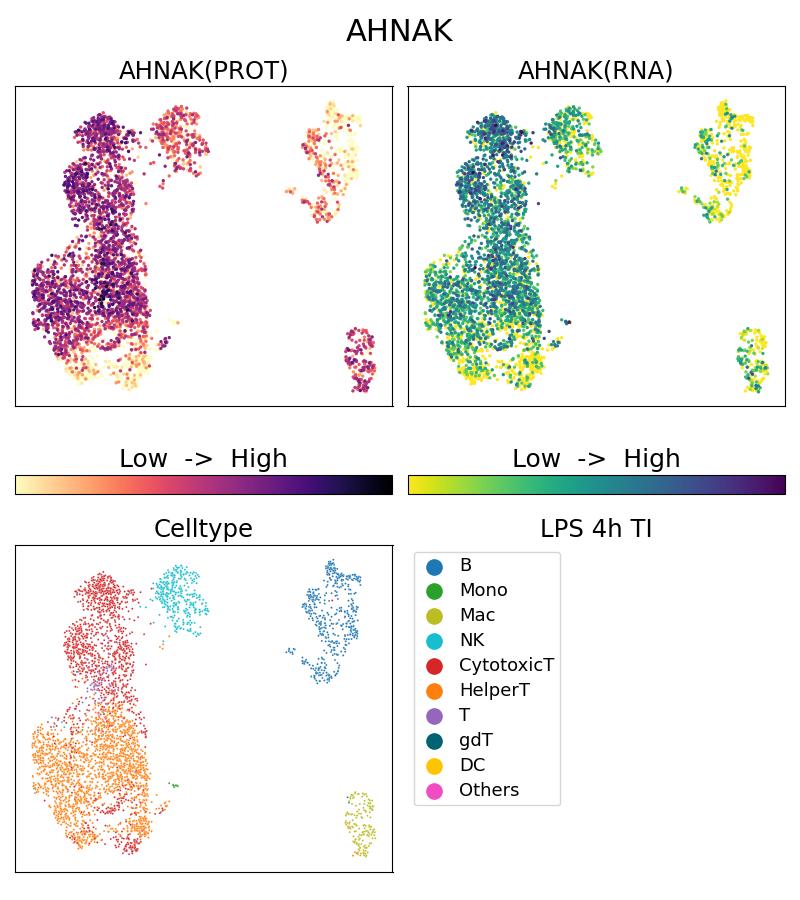Tested Applications
| Positive Single Cell (Intra) detected in | 10x Genomics Gene Expression Flex with Feature Barcodes and Multiplexing product. |
Recommended dilution
| Application | Dilution |
|---|---|
| SINGLE CELL (INTRA) | <0.5ug/test |
| It is recommended that this reagent should be titrated in each testing system to obtain optimal results. | |
Product Information
G16637-1-5C targets AHNAK in Single Cell (Intra) applications and shows reactivity with Human samples.
| Tested Reactivity | Human |
| Host / Isotype | Rabbit / IgG |
| Class | Oligo Conjugate |
| Type | Polyclonal |
| Immunogen |
CatNo: Ag9986 Product name: Recombinant human AHNAK protein Source: e coli.-derived, PGEX-4T Tag: GST Domain: 1-149 aa of BC000926 Sequence: MEKEEETTRELLLPNWQGSGSHGLTIAQRDDGVFVQEVTQNSPAARTGVVKEGDQIVGATIYFDNLQSGEVTQLLNTMGHHTVGLKLHRKGDRSPEPGQTWTREVFSSCSSEVVLNTPQPSALECKDQNKQKEASSQAGAVSVSTPNAG Predict reactive species |
| Full Name | MultiPro® 5CFLX Anti-Human AHNAK (Polyclonal) |
| Calculated Molecular Weight | 629 kDa |
| GenBank Accession Number | BC000926 |
| Gene Symbol | AHNAK |
| Gene ID (NCBI) | 79026 |
| ENSEMBL Gene ID | ENSG00000124942 |
| RRID | AB_3673890 |
| Conjugate | 5CFLX |
| Full Oligo Sequence | CGGAGATGTGTATAAGAGACAGCTGCGTACAGGTGGACCCATATAAGAAA |
| Barcode Sequence | CTGCGTACAGGTGGA |
| Form | Liquid |
| UNIPROT ID | Q09666 |
| Storage Buffer | PBS with 1mM EDTA and 0.09% sodium azide , pH 7.3. |
| Storage Conditions | 2-8°C Stable for one year after shipment. |
Background Information
AHNAK, also known as desmoyokin, is described as a giant scaffold protein based on its large size (629 kDa) and ability to interact with different proteins to form multi-protein complexes. The bulk of the protein is assembled in 128-residue repetitive elements known as the central repeated unit (CRU). Its proposed functions are quite diverse, ranging from a role in the formation of the blood brain barrier, in cell architecture and migration, to the regulation of cardiac channels and muscle membrane repair. AHNAK is differentially expressed in some cancer cell lines. The expression of AHNAK is subsequently localized to the plasma membrane of keratinocytes in human epidermis. AHNAK has been reported in many intracellular locations including the nucleus, cytoplasm and plasma membrane.
Protocols
| MultiPro™ Cell Surface and Intracellular Staining Protocol | Download protocol |
| 10x Genomics Cell Surface Protein Only Staining Protocol | Download protocol |






